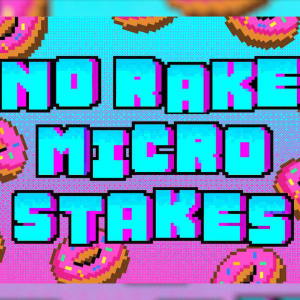
While there are many different ways you can educate yourself as a poker player, you can basically split them into two main categories, the ones that provide you with external feedback and the ones that don't.
We're all different and some players might thrive when left to their own devices, but most of us benefit when our game is scrutinized by another set of eyes. Without the external feedback, it's very easy to fell victim to numerous biases and cognitive errors. Things like hand history discussion on the forums and private coaching are among the most effective forms of poker education for a reason.
Forming a Study Group
First things first, in order to participate in a study group you'll have to either form or join one. For the purposes of this article, we'll focus on the proactive variant given how joining a study group is a route that's much less reliable. Besides, some well-established study groups have elaborate recruitment systems with various barriers of entry (and for a good reason! - more on that later) so you often have to approach them on a case by case basis. Lastly, you're far more likely to care about something that you created yourself than about something that was set-up for you.
The idea of creating a study group is fairly simple, you just have to find a few like-minded people ready to support each other in the process of becoming better poker players. Easier said than done! You'd think that creating a forum thread stating your intention should be the first thing that you should do when in fact it's most likely the second one. Before you start your recruitment process with strangers you should hit up some poker buddies if you're fortunate enough to have some.
People you know will most likely be a better material for a long lasting study group project given the main issues most of them face (again, we'll discuss that later in the article). If you don't have any poker buddies to hit up, create a short, concise forum thread stating exactly where you are and who you're looking for. If you're a NL50 cash game grinder looking to make the big leap to low and mid stakes you have no interest discussing poker with jackpot tournament grinders or micro-stakes hobbyists. The core of the group should consist of players in the similar situation.

Managing Your Study Group
Communication can make or break your study group. Most of the groups just pick an arbitrary text and voice chat software (usually Skype, sometimes discord or Facebook messenger), create a group conversation there and call it a day. This often proves to be a terrible idea. It can work for some groups depending on the personality of the members, but a group text chat has a tendency to quickly devolve into place for lengthy conversations about all things other than poker.
Unless you're ready to heavily moderate the chat activity you should either forgo the idea of group chat completely or emphasize from the start that everything other than strategy discussions isn't welcomed. This might sound harsh and it could be argued that some amount of off topic discussion could serve as a team-building exercise but in practice group chat quickly proves to be a giant waste of everyone's time.
To ensure that everything will be running smoothly you need a schedule. Playing some sweat sessions whenever two or more members of the group feel like it, is not going to cut it. Set up an account on an app like Trello or simply share a Google document with other members of the group. Invest one or two weeks into creating a standardized schedule that's going to work around the time constraints of every member. If you're going to ignore the individual schedules of the group members, they simply won't be able to adhere to your plan and when it comes to studying groups adherence is key!
Also, make sure that sweat sessions aren't the only group activity. Everybody loves sweat sessions, they are easy to set up (all you need is a microphone, voice communication and screen sharing software like TeamViewer or even Skype), they force the player to voice his or her thought process which usually positively affects their win rate during that session, and they don't really require that much work.

Make it Last!
If you've ever been a part of study group but you're still reading this article it's most likely because of the fact that the experience didn't last long. Turns out that most of the former study group members can share the same sentiment. Study groups have a tendency to fizzle out no matter how enthusiastic members seem at the beginning of their journey.
Here's they key to gaining an edge over 90% of study groups ever created and get the most out of yours - make it last! It's as simple as that. Your work can be widely-suboptimal, but as long as you're able to convince a few like-minded people to help each other improve in the cutthroat environment of a zero-sum game, you're doing better than the vast majority of the player population.
Remember that barriers of entry that potential members of the well-established groups have to face? Now you know their purpose. Let's face it, poker players are lazy. Laziness is ubiquitous even among the higher echelons of poker crushers and that's why you can have so many people who'll show great enthusiasm for your study group at the beginning but will also fail to stay disciplined enough to make a meaningful contribution.
Make sure the core of your group is very strong (start with friends over strangers, find people as close to your current poker situation as possible), keep the numbers relatively low and don't be afraid to let the weakest links in the chain go. Make everyone accountable and following the scheduled mandatory (employing some common sense, of course, like three strikes policy). This all might seem a bit harsh but so is the poker world.

Groupthink
Groupthink is the second biggest bane of study groups that often comes right before their demise. The preventive measures described above seem harsh to most people because we're conditioned to see value in maintaining the group structure. This of course had and still has some evolutionary advantages. You don't banish a great hunter from your tribe just because he enjoys peyote a little bit too much. Same goes for that GTO wizard in your group who sometimes has trouble explaining the advanced concepts due to the concentration of THC in his system.
Let's take a look at the definition of groupthink from Wikipedia:
"Groupthink is a psychological phenomenon that occurs within a group of people in which the desire for harmony or conformity in the group results in an irrational or dysfunctional decision-making outcome. Group members try to minimize conflict and reach a consensus decision without critical evaluation of alternative viewpoints by actively suppressing dissenting viewpoints, and by isolating themselves from outside influences."
This is exactly why many study groups conclude that they consist of the best players at their limit after just a few sweat sessions. This is why the group chats devolve into circle jerks of constant procrastination. This is why it's so hard for other players to let unreliable group member go. This is why so many study groups end up dissolving and why yours shouldn't!

